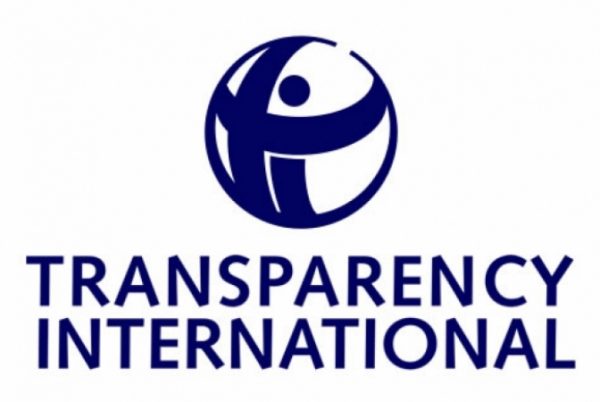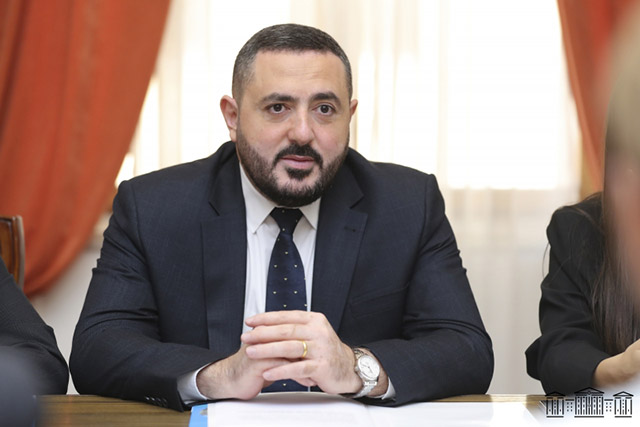Report on assessing the civil society environment in Eastern Partnership countries has been published. It presents the findings of the pilot research conducted by CSO Meter methodology to assess enabling environment for CSOs. CSO Meter is a tool developed to assess the civil society environment in Eastern Partnership countries. It consists of a set of standards and indicators in 10 different areas that measure both law and practice.
The research methods include analysis of legal acts, available researches and other documents and materials, focus group discussions (FGDs) with participation of CSOs, expert interviews and CSO online survey.
The report covers the most significant findings related to the indicators in 10 areas (freedom of association, equal treatment, access to funding, freedom of peaceful assembly, right to participation in decision-making, freedom of expression, right to privacy, state duty to protect, state support and state-CSO cooperation) of CSO enabling environment. It also focuses on key problematic issues to serve as a starting point for further advocacy initiatives.
Armenia has overcome major political changes in 2018, when mass anti-governmental protests in April 2018 resulted in the election of a new prime minister and changes in govern-mental cabinet, further leading to early parliamentary elections. These political changes were referred to as “Velvet Revolution” and brought some improvements in freedom of speech, freedom of assembly, free elections and fight against corruption. CSOs and informal civic groups took an active role in 2018 protests and have been subsequently involved in consultation with the government and monitoring of snap parliamentary elections. Many civil society activists were further involved in the composition of the new government or elected as parliament members.
There are more than 5,000 CSOs in Armenia, including public organizations and foundations. According to expert assessments, about 20% of them are active. Financial sustainability is one of the main challenges faced by Armenian CSOs, as they are largely dependent on international donor funding, with limited local funding sources. CSOs’ organizational capacities are improving, and there is an increasing number of CSOs setting internal regulations and initiating strategic planning. Few CSOs demonstrate transparency in their practices, which contributes to the low level of trust toward CSOs by the general public. Another reason for the low level of trust are the widely disseminated stereotypes of CSOs as “grant-chasing” organizations following foreign agenda and harming traditional values.
Read also
Legal regulations in the area of freedom of association are generally favorable for CSOs. CSOs can operate without necessity to register, while the registration procedure is not ex-pensive and takes up to 15 days. Online registration is not possible for CSOs, but since 2018 there is a possibility to deliver registration documentation through regional offices of the State Register. Some issues related to registration process are noted, including requirements to revise minor mistakes, such as typos, missing punctuation marks, or requirement to standardize the charter text in accordance with the exemplary sample of charter defined by the government. Among other issues, need for clarification of the scope of government oversight for CSOs has been identified in the area of Freedom of Association.
CSOs face discriminatory treatment in the registration process as well as when engaging in entrepreneurial activity in comparison to business entities. The registration fees are higher for CSOs, registration takes longer time, and tax regulation is less favorable for CSO entrepreneurial activities. On the other hand, CSOs face less tax checks and inspections as compared to companies. There is no explicit discrimination among the CSOs, though some CSOs note different treatment related to state funding practices and participation in decision making.
CSOs have access to various sources of funding, including public fundraising, international grants, private donations and state funding. Lack of state funding transparency and clear criteria have been highlighted among remaining challenges in this area. Although direct entrepreneurial activities have been allowed with legislative amendments, CSOs noted that there is a lack of sufficient incentives for starting economic activities. In addition, CSOs funded by specific international organizations face criticism and labelling by some groups of society.
As to the freedom of peaceful assembly, the legislation in this area is enabling and the practice has improved after the change in the government in May 2018. However, during the 2018 revolution and the preceding years many cases of police violence, pressure, unjustified interference, detention and unlawful use of police force and special means have been reported. The key problematic issues to consider in this area are obstacles for LGBT community representatives to exercise their right to peaceful assembly, discretionary inventions by police and insufficient efforts applied to effectively investigate police violations and hold police officers accountable.
There are a number of legal provisions and platforms for CSO participation in the decision-making process, including compulsory public discussion of draft laws, public councils adjunct to ministries, opportunities for public hearings, and joint working groups established in different areas. The Law on Local Self-Government also provides ample opportunities for public participation in community management. The problems in this area are related to the law enforcement and the effectiveness of public participation, as according to research participants, discussions and participatory platforms may be “formalistic” in nature.
Freedom of speech in Armenia does not face significant restrictions in present, unlike the pre-revolutionary period, when human rights defenders have been pressured for sharp criticisms. At the same time, public intolerance trends are observed, and the hate speech, which has significantly increased in social networks and spreads through the mass media, is not clearly regulated by law, nor adequately penalized. Issues in this area are reported also in terms of legislative regulations of the broadcast media and the constraint on the expression of opinion which is still observed in small communities.
The right to privacy is generally protected by law and in practice, although incidents of personal data leakage occur. Meanwhile, the protection from third-party attacks by the state is still faulty especially for organizations and human right defenders protecting the rights of LGBT representatives, women and religious minorities. Moreover, some government officials themselves demonstrate instances of hate speech and discriminatory approach towards the above-mentioned groups.
CSOs receive regular financial support from state and community budgets. As a rule, the procedures and the results of funding are not transparent and publicly accessible. Currently, there is an ongoing process to improve transparency of state support and introduce competitive procedures. CSOs may receive some tax benefits for charitable projects, but in general the available tax benefits for CSOs are insufficient. CSOs do not face obstacles when using volunteer work, though there are no policies or regulations promoting volunteerism.
There is no specific strategy or policy on state-CSO cooperation. The Concept on CSO Institutional and Legislative Changes developed several years ago was partially implemented through legislative changes. The main institutional mechanisms of State-CSO cooperation are the Public Council and various councils adjunct to ministries and regional administrations, as well as sectoral working groups. The effectiveness of these bodies varies depending on the level of CSOs’ pro-activeness and skills, on one side, and the attitude of responsible officials – on the other.
CSO Meter was developed within the framework of the “Monitoring Progress, Empowering Action” project funded by the European Union and implemented by the European Center for Not-for-Profit Law and a group of non-governmental organizations from the Eastern Partnership countries. Transparency International Anticorruption Center (TIAC) is the project partner in Armenia.
The report and CSO meter are both available on the TIAC website. The latter also includes a number of reports developed by TIAC and its partner organizations – MG Consulting LLC (Azerbaijan); Assembly of Pro-Democratic NGOs in collaboration with Legal Transformation Center (Belarus); Civil Society Institute (Georgia); Promo-Lex Association (Moldova); Ukrainian Center for Independent Political Research (Ukraine).
Transparency International Anticorruption Center PO






















































